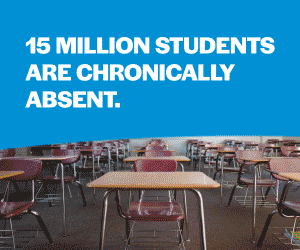 Susan Espinoza is surrounded by HISD police as she was asked to leave during HISD's school board meeting at HISD's Hattie Mae White building on Thursday, Sept. 14, 2023 in Houston, Texas. (Karen Warren/Houston Chronicle via AP)
Susan Espinoza is surrounded by HISD police as she was asked to leave during HISD's school board meeting at HISD's Hattie Mae White building on Thursday, Sept. 14, 2023 in Houston, Texas. (Karen Warren/Houston Chronicle via AP)
In the report, The Costs of Conflict: The Fiscal Impact of Culturally Divisive Conflict on Public Schools in the United States, superintendents cited direct financial costs such as paying for additional security, communications, and legal work. They also detailed indirect costs for redeploying staff to address challenges such as dealing with misinformation or threats on social media, responding to news media inquiries about book bans, and addressing dramatic increases for public records requests. Increased staff turnover caused by stress or harassment also increased costs for employee recruitment and training.
Taking a toll
“It’s important for the public and policymakers to be aware of ways culturally divisive conflicts are harming the schools our children attend,” said Joseph Kahne, a distinguished professor in UCR’s School of Education and co-author of the survey report. “These conflicts come with a very real cost.”
UCLA education professor John Rogers, the lead researcher for the survey, added: “This research makes clear that culturally divisive conflicts in the nation’s schools are generating fear, stress and anxiety that is disrupting school districts and taking a personal toll on the educators and staff members who work in them,” Rogers said. “Sadly, as superintendents have told us, the cost of these conflicts not only has a financial impact but is also eroding teaching and learning and undermining the trust between schools and the communities so essential to our democracy and civic life.”
“Incredibly contentious... awful behavior”
One superintendent quoted in the report—using a pseudonym—described a mid-sized, award-winning school district where “extremists” were elected to the school board, who then used social media to attack individual educators daily, “spreading false propaganda" and publicly slandering other board members as “pedophiles” among other “completely false fabrications.” Worried about “unpredictable and violent” people at board meetings, the superintendent hired off-duty police officers for additional security, to the tune of $100,000 per year.
Additional costs came from staff members quitting because of harassment, or because their days became filled by responding to false conspiracy theories, addressing misinformation, fulfilling public records requests, and responding to media asking about controversies. “Our staff are spending enormous amounts of time just doing stupid stuff … producing things that serve nobody,” he said. “It's the worst it's ever been.”
The role of “conflict entrepreneurs”
The researchers acknowledged there is no silver bullet to address these issues, as “the drivers of culturally divisive conflict are not rooted in schools, but in broader societal dynamics and incentives.” But they also concluded that district leaders should be aware of what they call “conflict entrepreneurs,” active individuals who have an outsized impact on the community through misinformation and threats, often on social media or in board meetings.
“It is vital for educational leaders and for the broader public to work to diminish the opportunities for conflict entrepreneurs to disrupt and distract and gain power—in school board meetings and elsewhere. [...] Rejecting this small number of conflict entrepreneurs would help ensure that community members communicate their disagreements in a manner consistent with democratic principles.”
Download the full report here.


























